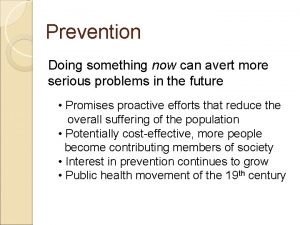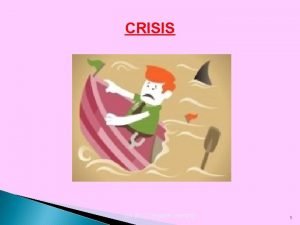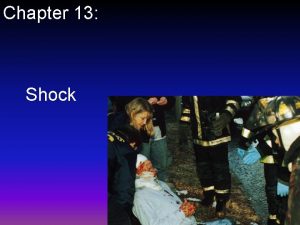Culture Shock Nigel Caplan ESL Specialist Writing Center













- Slides: 13

Culture Shock Nigel Caplan ESL Specialist Writing Center © 2010 by Nigel Caplan and the Writing Center at UNC-Chapel Hill.

Have you had these feelings in the U. S. ? 1. People seem to behave differently here from your country. 2. Americans don’t share the same values as you. 3. You feel disoriented, anxious, depressed, or hostile (angry). 4. You are not satisfied with American culture. 5. Social skills that work in your country don’t work here. 6. You think that these feelings will never end. Adapted from Hofstede, Pedersen, & Hofstede, Exploring Culture. Yarmouth, ME: Intercultural Press, 2002. Page 22

What is Culture Shock? • “Culture shock is about being out of place in a certain place and time” (Irwin, 2007). • It comes from “the anxiety that results from losing all our familiar signs and symbols of social intercourse” (Oberg, 1960). • Almost everyone who lives in another culture experiences culture shock, and almost everyone survives it! Irwin, R. 2007. “Culture shock: negotiating feelings in the field. ” Anthropology Matters, 9(1). Oberg, K. 1960. 'Culture shock: adjustment to new cultural environments. ' Practical Anthropology 7, 177 -182.

The 4 Stages of Culture Shock (Oberg, 1960) 1. Honeymoon 2. Hostility / Rejection 3. Adjustment 4. Integration Oberg, K. 1960. 'Culture shock: adjustment to new cultural environments. ' Practical Anthropology 7, 177 -182.

Stage 1: Honeymoon § The new culture is fascinating, exciting … § Usually lasts a few days to a few months § The tourist experience

Stage 2: Hostility / Rejection § You feel disoriented and have trouble adjusting. § You blame the new culture for confusing you. § You may become angry, frustrated, or aggressive toward the new culture. § You criticize or stereotype the new country. § You look for people from your country. § This is the “crisis” – you either stay or leave.

Stage 3: Adjustment § § § You begin to function well in the new culture You recognize good and bad parts of it You still think your culture is better You don’t criticize as much Instead you make jokes about the culture and your own difficulties

Stage 4: Integration § You accept and even enjoy the new culture “as just another way of living. ” § There are still occasionally difficulties, but you do not feel anxious. § You generally feel comfortable in the new culture. § You may even reach “biculturality. ” (Hofstede, Pedersen, & Hofstede, 2002).

Summary § Culture shock is not a bad thing. § Your feelings are probably normal, and you aren’t alone. § It gets worse before it gets better. § Being aware of the stages can help you understand your experiences.

Practical Strategies 1. Enjoy and learn about the culture and the campus 2. Avoid isolation; look for “cultural informants” 3. Maintain relationships here and at home 4. Use resources; ask for help 5. Don’t expect to be perfect 6. Keep an open mind; “study” the culture 7. Adjust to US culture without giving up your own 8. Look forward, not backward 9. Healthy body, healthy mind 10. Keep a journal, notebook, or blog Sources: Adapted from UNC Counseling & Wellness Services materials by Preeti Vidwans, and http: //www. lsa. umich. edu/oip/acceptance%20 forms/icads_culture_guide. pdf from U. of Michigan

Counseling & Wellness Services If you are experiencing psychological, academic, or health concerns, please visit Counseling & Wellness Services. CWS provides interventions, guidance, and support to students at UNC. www. campushealth. unc. edu

Website: www. unc. edu/writingcenter/esl Blog: eslonthehill. wordpress. com Online evaluation: http: //tinyurl. com/eslvideo Your feedback is very important to us! Thank you! © 2010 by Nigel Caplan and the Writing Center at UNC-Chapel Hill. Some rights reserved under a Creative Commons 3. 0 License for non-commercial use only. You may link to this URL with correct attribution, but before reproducing the presentation in another format, please contact the copyright holder.

References Hofstede, Pedersen, & Hofstede, Exploring Culture. Yarmouth, ME: Intercultural Press, 2002 Irwin, R. 2007. “Culture shock: negotiating feelings in the field. ” Anthropology Matters, 9(1). Oberg, K. 1960. “Culture shock: adjustment to new cultural environments. ” Practical Anthropology 7, 177 -182. University of Michigan Office of International Programs Culture Guide -http: //www. lsa. umich. edu/oip/acceptance%20 fo rms/icads_culture_guide. pdf
 Culture shock writing
Culture shock writing Site:slidetodoc.com
Site:slidetodoc.com Shock normovolemico
Shock normovolemico Spinal shock vs neurogenic shock
Spinal shock vs neurogenic shock Spinal shock vs neurogenic shock
Spinal shock vs neurogenic shock Subacute combined degeneration of the cord
Subacute combined degeneration of the cord Caplan's four types of consultation
Caplan's four types of consultation Difference between obstructive and restrictive lung disease
Difference between obstructive and restrictive lung disease Psychologia kliniczna
Psychologia kliniczna Caplan prevention model
Caplan prevention model Caplan model of crisis intervention
Caplan model of crisis intervention Caplan's seven characteristics
Caplan's seven characteristics Gyarmathy tihamér
Gyarmathy tihamér Caplan 1964
Caplan 1964

























